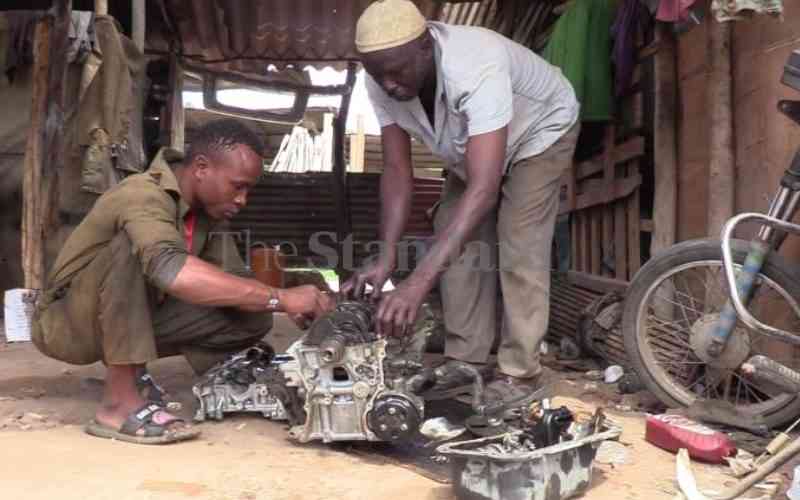×
The Standard e-Paper
Join Thousands Daily

At the Malindi jua kali sheds in Kilifi County, we find Islam Katana Yaa, a mechanic with over 30 years of experience, but who lacks any academic certificates to show for his skills.
Mr Yaa says there is no car engine he cannot fix. He is, however, aware that his experience counts for nothing if he were to apply for a job in a car manufacturing company.